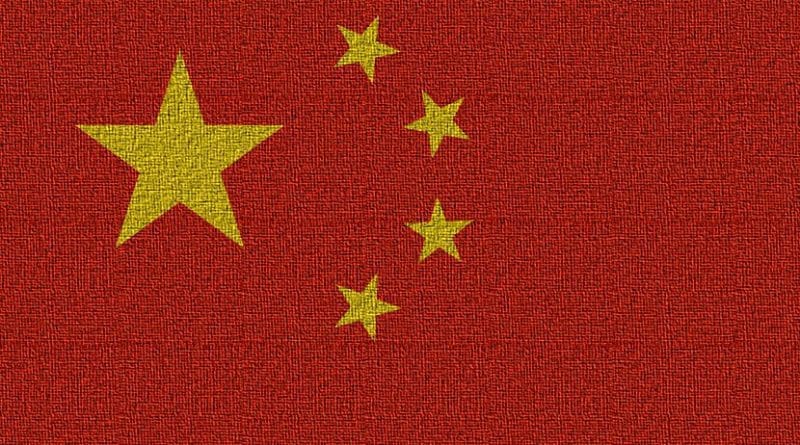Next Chinese Government: Conservative Princelings Or Reform-Minded Tuanpai? – Analysis
By Zachary Fillingham
The next rulers of China will be revealed this week, but a clear picture has yet to emerge as to whether the new Politburo Standing Committee will be dominated by the Xi Jinping ‘princeling’ faction, or the Communist Youth League ‘tuanpai’ clique that has rallied around outgoing President Hu Jintao. Whichever it is will have a decisive impact on the next ten years of Chinese government policy.
Early reports suggesting that the Standing Committee will be reduced to seven seats for the Xi Jinping administration seem to be ringing true ahead of the 18th Party Congress this week. Over the past sixty years, the makeup of the Standing Committee has fluctuated to include anywhere between five and eleven members, and the number of available spots is a critical factor given that decisions are reached via consensus voting.
The Standing Committee under Hu Jintao was increased from seven to nine members due to irreconcilable differences between Hu Jintao and then-outgoing President Jiang Zemin as to who should make the cut. Consequently, the regime was often unable to build the consensus required to push through bold new economic and political reform; a shortcoming that earned it a fair amount of criticism from outside observers.
But now that the Standing Committee is being scaled back to seven, high-level policy will be less prone to obstruction and the Xi Jinping administration will have a freer hand to put its own stamp on Chinese society.
This leaves us with two important questions: who will be on the next Standing Committee, and perhaps more importantly- what policies will they pursue?
The pool of potential candidates can be divided into two broad categories: the ‘princelings’ that have family links to the first generation of CCP leaders and the ‘tuanpai,’ or Communist Youth Leaguers, who orbit around Hu Jintao. Many of the princelings are protégés of former President Jiang Zemin, a figure who continues to exert considerable influence on the Chinese political process at the ripe old age of 86.
There are two members of the current Standing Committee that are guaranteed to keep their seat: Xi Jinping, princeling son of Xi Zhongxun and the next President of China, and Li Keqiang, Wen Jiabao’s successor who rose through the ranks of the Communist Youth League.
As for the remaining five seats, the New York Times has tipped Zhang Dejiang (links to Jiang Zemin), Wang Qishan (princeling), Zhang Gaoli (links to Jiang Zemin), and Liu Yunshan (links to Jiang Zemin, tuanpai). The last available spot is being fought over by Li Yuanchao (princeling with tuanpai background) and Yu Zhengsheng (princeling).
This narrowed field of candidates suggests that the fall of Bo Xilai (himself a prominent princeling) will not tip the scales towards the tuanpai faction in the new Standing Committee. Quite the contrary, it looks like the princelings (and Jiang Zemin) will cast a large shadow over the new Chinese government; one that, again, will benefit from a streamlined decision-making process.
Jiang Zemin’s ongoing influence on the highest levels of Chinese politics is one factor that will steer future policy in a more conservative, less reform-oriented direction. In addition, it looks like some of the more reform-minded candidates have not made the final shortlist for the Standing Committee- candidates like Wang Yang and Liu Yandong.
In the past, princelings have generally favored a more conservative and closed approach based on high levels of state involvement in the economy (or Bo Xilai’s ‘Chongqing Model’). Most of them have amassed considerable family fortunes within the current system and are thus hesitant to increase the pace of political and economic reform in China, especially when doing so risks exposing the role of graft in the building of said fortunes. Thus, a Standing Committee that is dominated by princelings should not be expected to forge ahead with a bold reform agenda unless a crisis breaks out and forces its hand.
But a crisis is exactly what it might be faced with, because the Xi Jinping regime will be expected to resolve a litany of socioeconomic issues that have been left to simmer during the policy stagnation of the past decade. The economic recalibration away from a high-employment low cost export-oriented economy to one that is powered by domestic consumption and high wages must occur sooner or later, and when it does there will be a lot of Chinese workers who lose out. How this social and economic transition is tackled stands as one of the central questions surrounding the Xi Jinping administration.
Zachary Fillingham is a contributor to Geopoliticalmonitor.com

